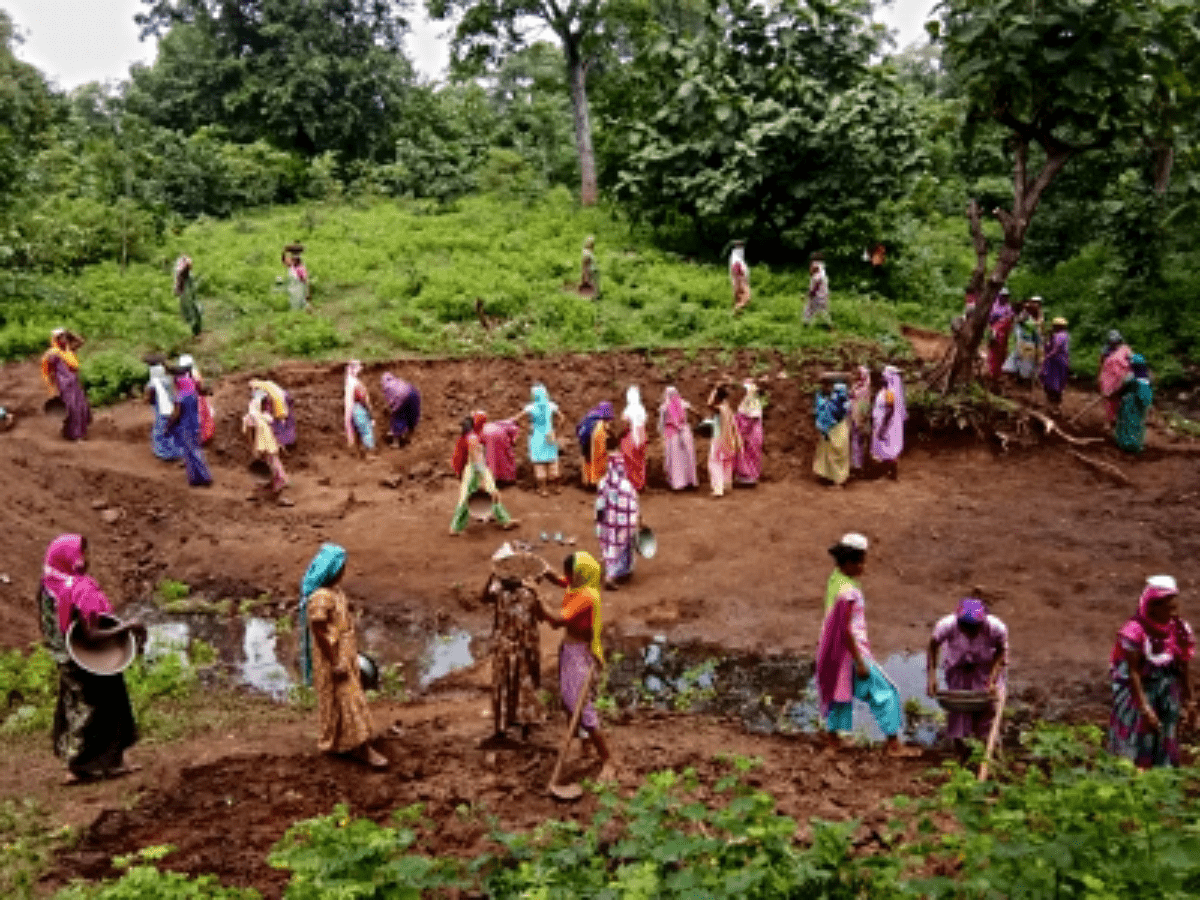
New Delhi: As MGNREGA workers continue their 100-day protest at Delhi’s Jantar Mantar against the recently introduced app-based attendance system, social activist Aruna Roy on Friday said the new system is weakening the law.
Roy, who played a key role in the stir for the rural employment guarantee law, accused the Union government of trying to destroy the law by cutting allocations and making the process of seeking employment difficult by introducing the app-based attendance system and Aadhaar-based payment system.
“Lakhs of people struggled for 10-12 years to get a law to give employment guarantee. Now they’re destroying the law by just issuing an order… I’m not appalled, is this democracy? This cannot be done, you can’t ignore demands of the majority of people on edge of starvation. You gave the smallest amount of succour and now withdrawing it… Is it democracy?” Roy asked.
“They are taking away a constitutional right… They know they cannot do away with the law so they’re making it weak,” she said.
Workers on protest meanwhile raised slogans saying ‘No NREGA, No Votes’ and said they’re losing employment as the app often does not work due to network issues.
Mandavi Devi, a daily wage labourer from Muzaffarpur, Bihar, said getting work in MGNREGA is not easy, and they never get 100 days of work. She said with the new app-based attendance system, many a time their attendance is not marked due to network issues.
“We have to walk 4-5 kilometres to go to the work site. We are ready to work, but after reaching the site, if the attendance does not get marked, then we don’t get paid,” she said.
Sudama Devi, who is also from Muzaffarpur, said the workers prefer working under MGNREGA as it pays more, but the new attendance and Aadhaar-based payment systems are proving to be a hindrance.
“The landlord in the village, we call him ‘Malik’. If we work in his field, he pays Rs 50 for a day, and also verbally abuses us. I have a 10-member family, how would everyone eat for Rs 50? If we work for MGNREGA, we have Rs 200-250,” she said.
The protesting workers also recently met officials from the Rural Development Ministry. Asked what transpired in the meeting, a member of the NREGA Sangharsh Morcha said that the government told them it was not willing to do away with this system.
Roy warned that the weakening of MGNREGA will negatively impact the rural economy.
“India could sail through global meltdowns because of such schemes that empower the poor… If you ask a worker what difference MGNREGA made in their lives, they’ll tell you they could feed their families, send their children to school, afford healthcare, it’s that basic,” said Roy.
Workers embarked on a protest in the national capital on February 14, barely a month after digital attendance was made mandatory for MGNREGA, with complaints that their attendance is not getting marked and wages are being deducted.
Mahatma Gandhi National Rural Employment Guarantee Scheme, better known as MGNREGA or NREGA, is a flagship scheme aimed at enhancing the livelihood security of households in rural areas of the country by providing at least 100 days of guaranteed wage employment in a financial year to every household whose adult members volunteer to do unskilled manual work.
